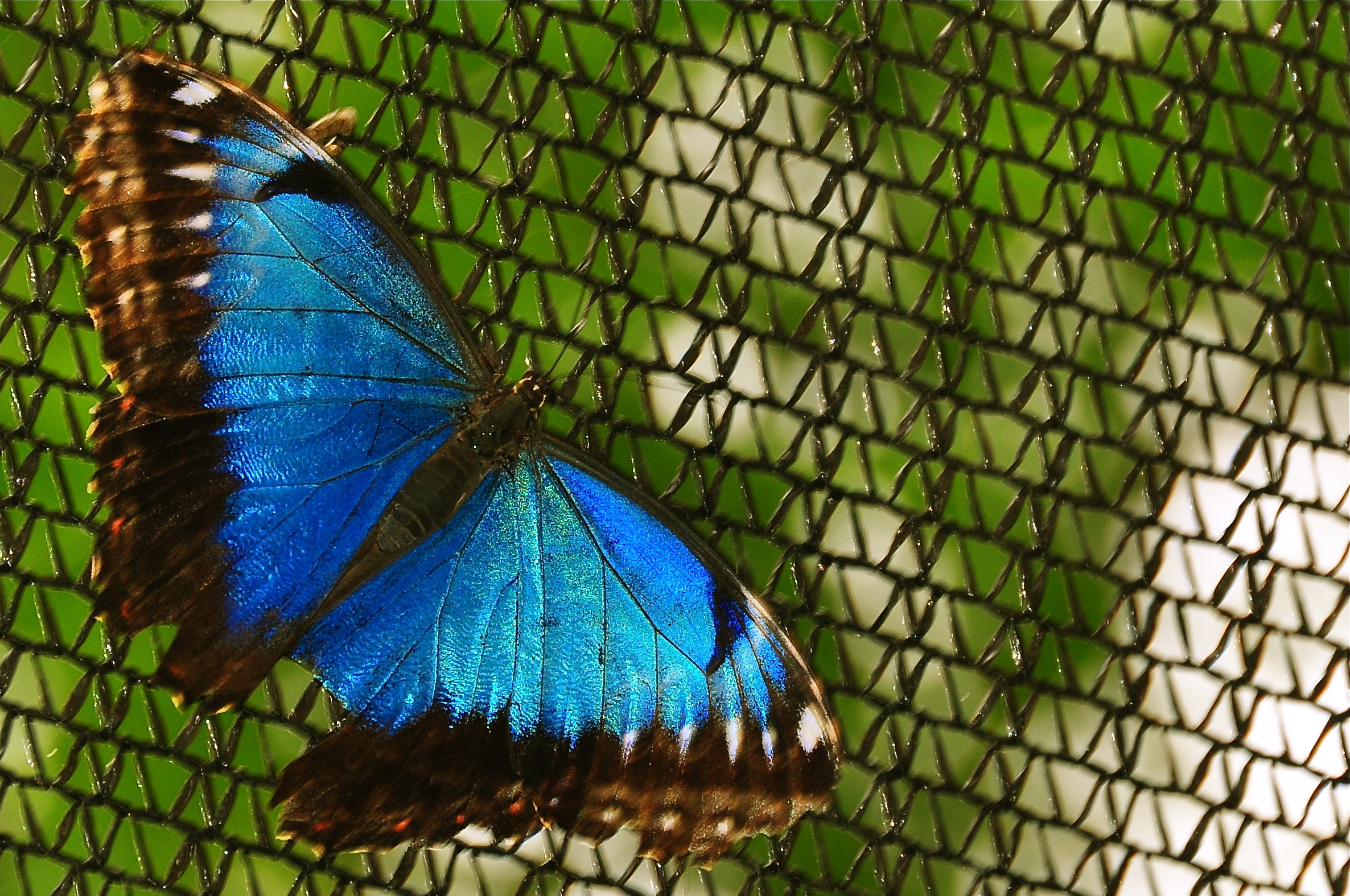If a bird flies in the forest, does an insect hear it?

Morpho peleides is a tropical butterfly with a brilliant blue colour. Pilots flying over rainforests have been known to spot large collections of blue morphos above the treetops, warming themselves in the sunshine. The millions of tiny scales on its wings give it a shine and a glean that it uses to scare off predators. In the 115 days of its lifetime, the butterfly will need to fight off predators including birds — who are major predators of many insects including moths, crickets and cicadas. The blue tropical butterfly has ears which researchers believe it uses to avoid predation by birds.
Writing in the journal Biology Letters researchers provide evidence supporting the notion that the ears of an insect can function as “bird detectors”. With most eared insects, moths, butterflies, and grasshoppers consumed by birds, the primary strategy for avoiding getting eaten is camouflage. However, it has been known for a long time that certain insects have ears, but the exact reason why had never really been explored. At Queen’s University Biology Station near Chaffey’s Lock in Ontario, Canada, they would gather to find out if insects could hear the flight of birds. And not only hear their flights, but react to them.
Researchers started with a confucius-like question — if an insect’s ears are for detecting and avoiding predatory sounds, does the predator make distinct sounds that can be replicated — “one prediction is that foraging birds produce acoustic cues.”
They set out by recording the sounds of two insect-consuming birds — a flycatcher and a chickadee — that captures their prey in two different ways. Flight sounds and videos were recorded from 32 attacks on tethered moths.
When the predatory birds forage and fly around, they produce sounds. The bird’s sound of flight frequencies overlap with the hearing range of most insects. Perhaps for a reason. Their cyclic wing beatings can be heard and detected by the insect. Researchers estimate that insects can detect an approaching bird from distances of at least 2.5 metres.
The butterfly’s extracellular nerve recordings were elicited when they heard recordings of bird flights. The moth’s response is similar to those that elicit evasive flight manoeuvers. The auditory nerve cells of moths butterflies responded in a bursting pattern to playbacks of an attacking bird.
The research throws up an interesting question, particularly given the strong selective pressure birds have on insects — and that is a chicken and egg question. Do insects exploit these sound cues, and have birds evolved certain sound-reducing foraging tactics to render them acoustically stealthy to their prey.
Image — source
 Follow
Follow
1 thought on “If a bird flies in the forest, does an insect hear it?”
Comments are closed.